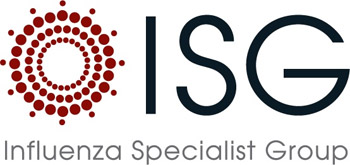Go Ahead Take The Shot

Go Ahead Take The Shot
Each year, influenza causes more than 18,000 hospitalisations and costs the Australian healthcare system $85 million. More alarmingly, influenza is responsible for around 1,500 deaths, similar to Australia's annual road death toll.
The Influenza Specialist Group is urging people to be vaccinated in the lead up to winter. People in the high risk category are eligible to receive the influenza vaccination for free.
People at greater risk of complications from influenza include those with heart conditions, asthma and respiratory conditions, type 1 or type 2 diabetes, kidney disease, impaired immunity and neuromuscular disorders. Pregnant women, people over the age of 65, and Aboriginal and Torres Strait Islanders are also at greater risk of complications. Unfortunatley, only 30-40 per cent of people in this high risk category are being immunised. New Australian research also suggests that the influenza vaccination seems to almost halve the risk of heart attacks in middle-aged people with narrowed arteries.
Vaccination during March or April is wise, prior to outbreaks beginning.
It is important for people to be immunised annually as the vaccine usually changes slightly each year because influenza viruses change, and this is the case for the 2014 vaccine, which is different from 2013. In addition, during the course of a year a person's immunity reduces by 50 per cent or more, so regardless of the changes it's important to keep boosting your immunity.
Some people believe that having the infuenza vaccination can result in a person contracting influenza, which is a myth. The vaccine contains dead influenza virus but this can't give you influenza. In rare cases, a person's immune system reacts and they may feel a little off-colour and get minor symptoms during the 24 hours after the vaccine. But this is not influenza.
If you do become infected, you can aid your recovery and avoid the spread of influenza by following these simple guidelines:
stay home
rest and keep warm
consume plenty of liquids
do not consume alcohol
wash your hands regularly
cover your nose and mouth when coughing or sneezing (use the inside of your elbow)
avoid physical contact with others
avoid mixing with other people while you're contagious, particularly those in the high risk category
stop smoking or reduce your consumption as much as possible
ensure someone checks on you and does your shopping
don't return to work early (as you could still be contagious)
For more information about influenza and the influenza vaccine go to: www.flusmart.org.au or the Influenza Specialist Group's Facebook Page
MORE
- Aussies Turning to Cyberspace to Self-Diagnose
- Waking up to the Dangers of Diabetes
- World Sight Day
- Your Cholesterol
- Go Ahead Take The Shot
- Do Brain Games Ward off Dementia?
- Complexity of Allergic Disease Impacts Patient...
- Carol Ireland and Renee Elliott Epilepsy Interview
- Bone Up on ways to Prevent Osteoporosis
- How Do You Stop Being Bullied Online?





